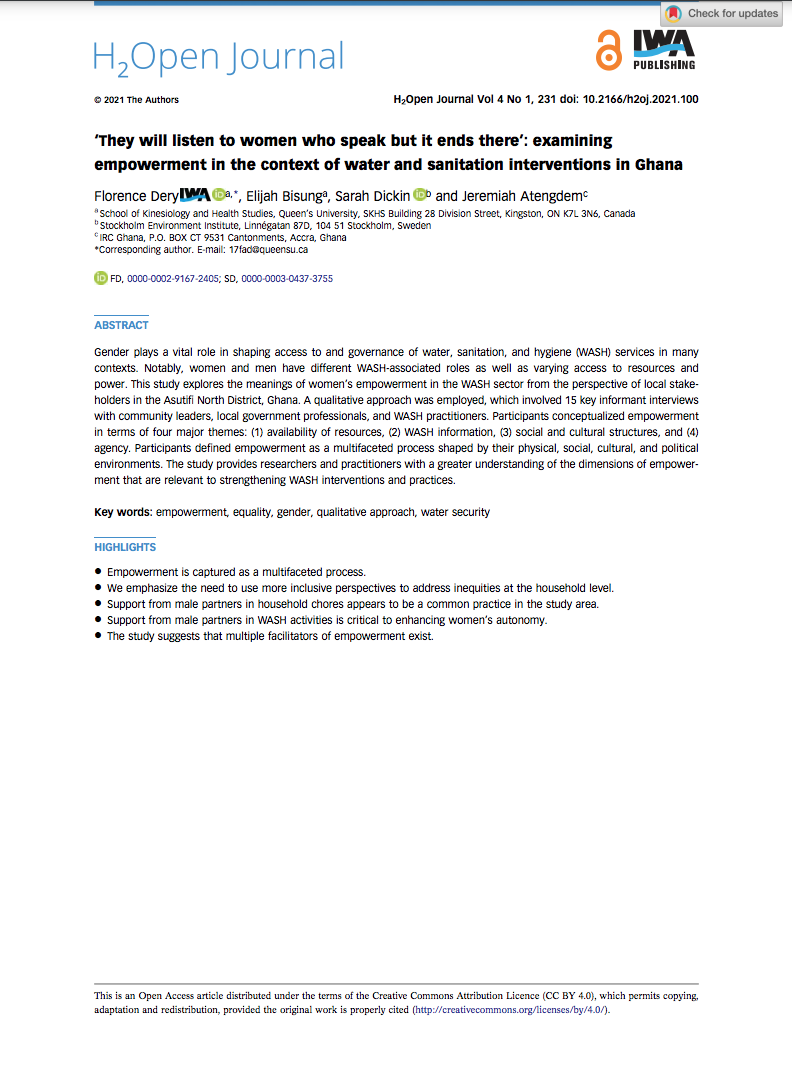Authors: Florence Dery, Elijah Bisung, Sarah Dickin and Jeremiah Atengdem
Gender plays a vital role in shaping access to and governance of water, sanitation, and hygiene (WASH) services in many contexts. Notably, women and men have different WASH-associated roles as well as varying access to resources and power. This study explores the meanings of women’s empowerment in the WASH sector from the perspective of local stakeholders in the Asutifi North District, Ghana. A qualitative approach was employed, which involved 15 key informant interviews with community leaders, local government professionals, and WASH practitioners. Participants conceptualized empowerment in terms of four major themes: (1) availability of resources, (2) WASH information, (3) social and cultural structures, and (4) agency. Participants defined empowerment as a multifaceted process shaped by their physical, social, cultural, and political environments. The study provides researchers and practitioners with a greater understanding of the dimensions of empowerment that are relevant to strengthening WASH interventions and practices.

